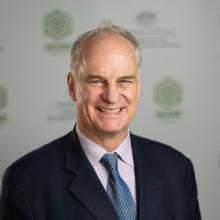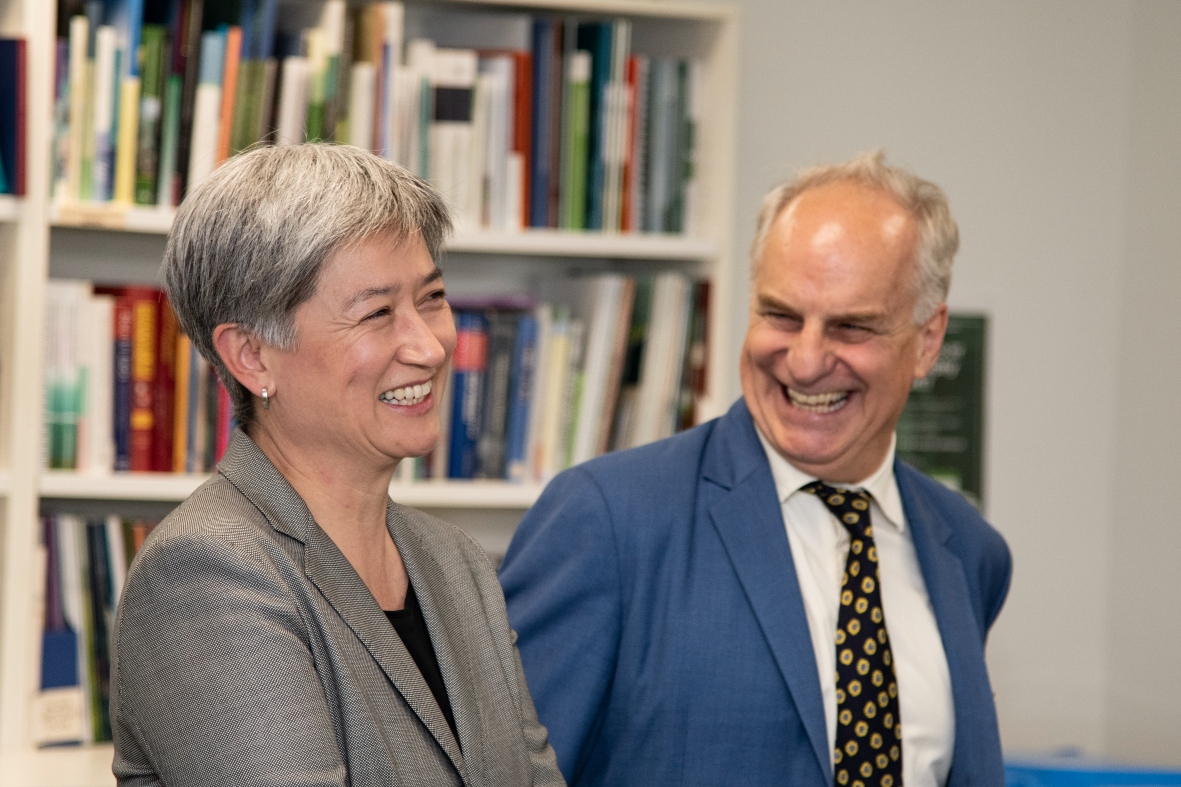CEO Welcome
The Australian Centre for International Agricultural Research (ACIAR) is celebrating the achievements and impacts of 40 years of agricultural research-for-development, throughout 2022. Tackling shared challenges with partner countries in the Indo-Pacific region through agricultural research collaboration remains a compelling element of Australian soft power in our region. Australia is well equipped to play a leading role within our region and globally –disproportionate to the size of our population and economy.
At the outset of 2022, ACIAR released a 2-part impact assessment of 40 years of research. The quantitative assessment calculated a total benefit of at least $64 billion dollars, with a $3.7 billion benefit to Australia. This is a conservative result, as the study focused on just 10% of investment since 1982, and is based on parameters that are readily quantifiable. The qualitative assessment identified the key design, management and practice principles that support effective translation of research knowledge into development outcomes.
The study gives us confidence that our well-established but continually evolving research partnership model is delivering against our vision and mission. The work of ACIAR and its partners supports regional stability, health security and economic recovery, and builds scientific and policy capability for more productive and sustainable agriculture, fisheries and forestry.
A time to review and refresh
ACIAR has conducted systemic ex-post economic impact assessment on research investments since the late 1980s. Our work is monitored at the project and portfolio level, to understand the impact of our achievements and to guide future investment. The culture of a learning organisation is central to the ACIAR 10-Year Strategy 2018–2027.
As well as a time for celebrating, the milestone of 40 years of operation is a good time for reflection and coincides with a mid-term review of the 10-year strategy. The Commission for International Agricultural Research appointed a highly qualified panel, chaired by Dr Wendy Craik AM, to review progress against the objectives of the strategy and to assess if the strategy remains fit for purpose, especially given the significant change to the ACIAR operating environment due to the COVID-19 pandemic.
During 2022–23, and the second half of the 10-year strategy, ACIAR will consider and implement the recommendations of the review, with an immediate focus on transferring a proportion of research investment from single issue or single discipline projects, to transdisciplinary and cross-program initiatives. We will also look to maximise synergies between our multilateral and bilateral investments, by developing innovative partnerships with multilateral agricultural research-for-development institutions, including CGIAR. We will also release a refreshed version of the ACIAR 10-Year Strategy 2018–2027.
Equitable, inclusive and empowering
This year we look forward to working with some 370 organisations on approximately 170 projects, to address many challenges and opportunities.
Recognising the centrality of gender equity and of inclusive approaches to diversity across all stages of the research cycle, we look forward to releasing the ACIAR Gender Equity and Social Inclusion Strategy and Action Plan 2022–2027. The plan will provide a road map to scale up and integrate gender equity and social inclusion into ACIAR research, capacity building and outreach programs.
This year we will also work towards a stronger integration of investments by the ACIAR Capacity Building and Research programs by embedding strategic capacity building initiatives at the planning stage of selected research projects. ACIAR projects that share expertise in genuine partnerships, build scientific and policy capability in partner countries and deliver benefits back to Australia.
Recognised global science partner
Australia’s reputation as a valued international partner in agricultural research-for-development was in the spotlight in November 2022, as ACIAR hosted the CGIAR System Council for the first time.
The CGIAR is the world’s largest agricultural innovation network dedicated to reducing rural poverty, increasing food and nutrition security for human health and improving natural resource systems and ecosystem services. Australia contributes approximately $20 million to CGIAR each year. ACIAR represents and manages Australia’s investment in CGIAR, and as one of the top 15 funders, Australia has a seat on the CGIAR governing body, the System Council. Dr Jurgen Voegele, System Council Chair and World Bank Vice President for Sustainable Development, invited Australia to
host the 17th CGIAR System Council meeting.
ACIAR timed the System Council meeting to coincide with the TropAg International Agriculture Conference, also in Brisbane, a biennial conference attended by approximately 800 food and agricultural scientists. Hosted by the University of Queensland, a major ACIAR collaborator, the conference features scientists actively engaged in agrifood systems research for improved nutrition, sustainability and human health.
The Commission for International Agricultural Research and the Policy Advisory Council – bodies established under the ACIAR Act to advise the Australian Minister for Foreign Affairs – also met at this time. To capitalise on the presence of global leaders and leading scientists, the Commission, supported by the Policy Advisory Council, hosted a 3-part dialogue entitled ‘Food security and food systems transformation in the Indo-Pacific – the role for science’.
Australia’s contribution to the region
In 2022–23, ACIAR will be consolidating the functions of its newest, and eleventh, country office – in Dili, Timor-Leste. ACIAR has been a development partner with Timor-Leste for more than 20 years. However, health and nutrition outcomes in the small nation are not satisfactory, and R&D capacity at the individual, organisational and institutional levels remains low.
The opening of an ACIAR country office in Timor-Leste allows for a locally focused but regionally strategic approach to research and capacity building investment.
Science partnerships in areas of shared concern like food security, water security, health security and biosecurity – all amplified by climate change – are a distinctive element of how Australia projects itself across the Indo-Pacific region. This Annual Operational Plan provides a comprehensive outline of the investment by ACIAR of around 2.5% of the Australian Overseas Development Assistance (ODA).
The Australian Government is revising its development policy, that will necessarily inform the ODA budget and the delivery of aid programs. From initial discussions with the Foreign Minister, Senator the Hon Penny Wong, I am confident that ACIAR and the research investments we manage are well-positioned to inform development policy and its implementation. Minister Wong has a very clear understanding that Australia’s strengths in agricultural, environmental and health sciences are a strategic national asset, highly relevant to the challenges faced by all countries across the Indo-Pacific region. Food security concerns, exacerbated by the ‘three Cs’ of climate change, COVID-19 and conflict, are central once again. The intersections between food security, biosecurity, water security, health security and national security have never been more obvious or cogent.
This Annual Operational Plan, my last as CEO of ACIAR, sets out where and how we plan to invest over the coming year. I have every confidence that our highly committed and skilled staff and partners in Australia and our partner countries will deliver this plan successfully, adding to the 40 years of durable impact already delivered through ACIAR. It has been
an honour to be part of this endeavour since 2016.
Andrew Campbell
Chief Executive Officer
ACIAR


